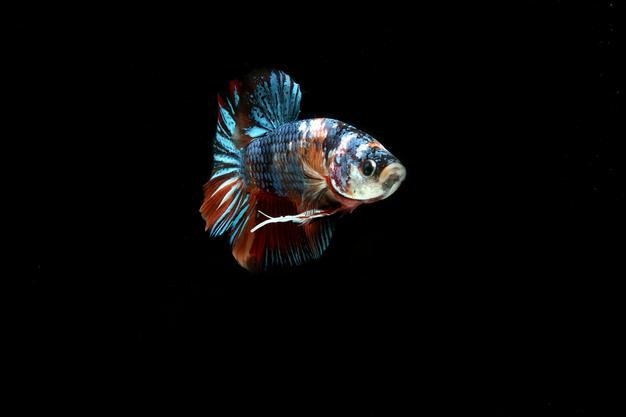Table of Contents
Giant Bettas are a unique species of fish, and as with all unique animals, there are certain risks and considerations when housing them. While they are relatively peaceful compared to other betta species, that doesn’t mean they won’t fight or attack each other. It’s important to know how to handle your giant betta fish for sale and make sure that they don’t hurt themselves or their tank mates. Many variables go into whether or not two betta fish will fight. Their personalities, their size difference, and the size of their home all play a role in helping you figure out if your bettas might fight and what you can do about it. Here is everything you need to know about handling your Giant Betta and making sure it stays safe for everyone involved.
How often do Giant Bettas fight?
When it comes to Giant Bettas and fighting, there are a few variables that go into this. The first is the size difference between the two bettas. The bigger betta will likely be the instigator, and the smaller one will be the victim. The second is whether or not both Giant Bettas are male. If two males are in the same tank, they will most likely fight. If they are female, they are less likely to fight, but it is still possible. In general, unless you have one male and multiple females, Giant Bettas are less likely to fight than smaller bettas. However, it is important to be vigilant and watch them closely for signs of fighting.
Why do Giant Bettas fight?
Normally, bettas are more aggressive during mating season. Female bettas that are spayed will exhibit this aggression as well. This is normal behavior, and it’s important to know that your bettas are experiencing stress. If your bettas are fighting, the cause of the fighting may be the tank size, their food, the water conditions, or the personalities of your bettas. If your bettas are fighting, you can examine their living conditions and try to change them to keep your bettas happy and safe.
Which bettas will fight?
Certain bettas are more likely to fight than others. Bettas with red fins are known to be more aggressive than bettas with blue fins. This is because the red fins are a sign of being male, and the blue fins indicate that the fish is female. Bettas with long fins and Giant Bettas are also more likely to fight with each other. Long finned bettas are more aggressive than short finned bettas. Bettas with short, stubby fins are less likely to fight (but they still could).
Safe ways to house multiple bettas
If you have multiple Giant Bettas, it’s best to house them in a large tank. A 10-gallon tank is the recommended minimum. If you have more than two bettas, it’s important to use a tank divider. This will help the bettas stay separate from each other and prevent fighting. If you have two female bettas, you can house them in the same tank. If you have a male and female in the same tank, it’s best to house them in a large tank with a divider.
Dangerous ways to house multiple bettas
If you have a young Giant Betta or small fry in the tank with a large Giant Betta, it could be dangerous. It’s important to house them in large tanks with dividers or keep them separate from each other. If you have two males in the same tank, they will likely fight. Two males in the same tank without a divider is dangerous and should be avoided at all costs. If you have a male and female in the same tank, it’s important to use a divider to protect the female. If you have a male and female in the same tank, it’s best to house them in a large tank with a divider.
Conclusion
Giant Bettas are unique and beautiful fish, but they are also unique in their needs and care. It’s important to know how to handle your Giant Betta and make sure that they don’t hurt themselves or their tank mates. Giant Bettas are less likely to fight than other betta species, but that doesn’t mean they won’t. It’s important to house them in large tanks with dividers and to house male and female bettas separately. When it comes to bettas, it’s always best to err on the side of caution, and you’ll be rewarded with healthy, happy fish.

